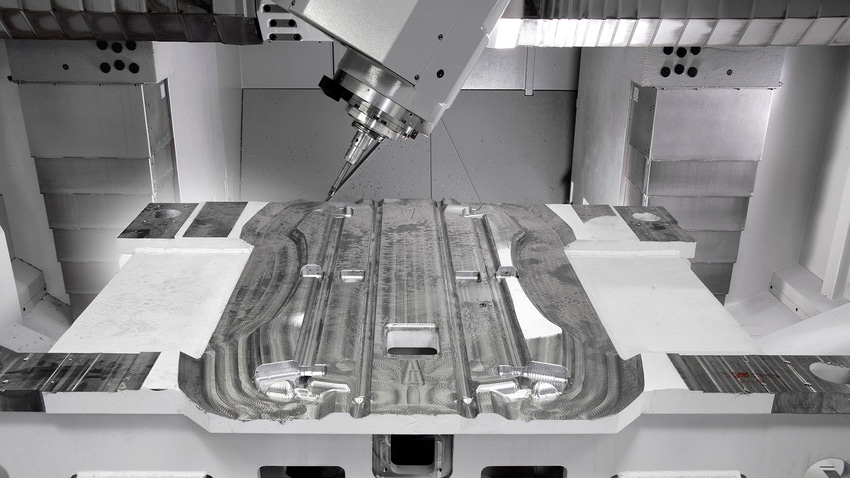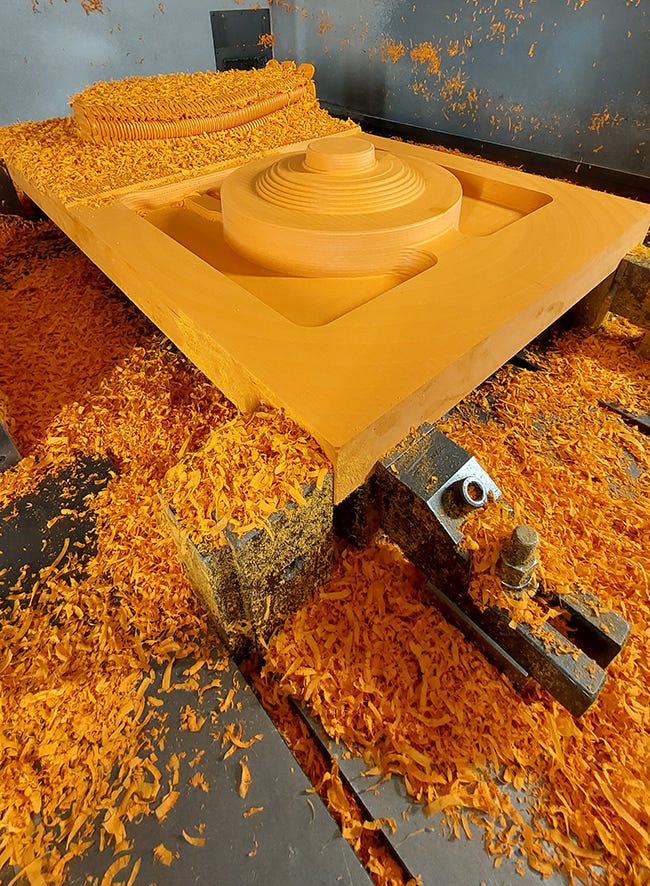KraussMaffei Bundles 3D Printing and Surface Finishing Services
The single-source service couples the company’s powerPrint large-format printer with post-process milling to achieve “mirror-smooth” edge finishes on plastic parts.
December 13, 2023

At a Glance
- Additive manufacturing system can produce components measuring up to 2 x 2.5 x 2 meters
- Plastics milling equipment achieves up to RZ 12 surface smoothness
- Print-on-demand system allows customers to switch from Ureol to more break-resistant PET GF 30
KraussMaffei is offering end-to-end 3D-printing products and services that couple its powerPrint large-format printer with post-process milling tailored to the unique needs of additively manufactured plastics.
Components measuring up to 2 x 2.5 x 2 meters can be produced in the powerPrint, an extruder-based system with a nozzle range between 2 and 20 mm and print temperature up to 400°C. The printer can process a range of materials including ABS, PA6, PETG, PLA, ASA, TPU, and PP. Customers can either purchase these printers or use the company’s print-on-demand service.
After the initial print, milling plastics requires machines different than those used for metal components. Plastics milling is a simpler process that removes more material. KraussMaffei milling equipment is highly dynamic, tailored to achieve fast cutting speeds and production times by using extremely sharp tools and optimizing chip removal. This specialized equipment produces “mirror-smooth” edge finishes up to RZ 12, a measure of surface smoothness. Even more smoothness can be achieved by extending processing time, according to the company.
KraussMaffei’s holistic 3D-printing approach is a partnership across the company’s business units. When additive manufacturing project engineer Ender Murat Ferat was asked about this service, he reached out to his toolmaking colleagues in the company’s facility in Harderberg, Germany.

Milling of a 3D-printed model. Image courtesy of KraussMaffei.
“We initially tried working with external milling companies, but working in-house is of course much more efficient — and you also retain the expertise,” he said.
The Harderberg team had been milling plastic — mostly Ureol (polyurethane or epoxy resin) in sheet and block form. “Our products include prototypes and leatherette models for the automotive industry,” explained Production Manager Stefan Springrose.
With its unique approach, Krauss Maffei’s print-on-demand system allows customers currently using Ureol to switch to more break-resistant PET GF 30, which features 30% glass-fiber reinforcement.
In testing the processing of glass-fiber-reinforced PET, “diamond-coated milling cutters are necessary to withstand the abrasive material,” added milling team leader Thorsten Richter. “This significantly reduces wear.”
Visit the KraussMaffei website to learn more about print-on-demand additive manufacturing.
About the Author(s)
You May Also Like


